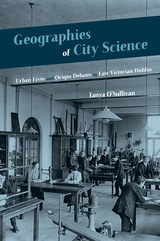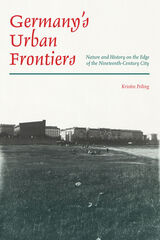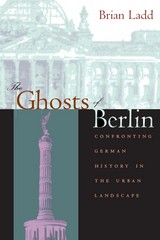7 start with G start with G

Gardens have exerted a deep influence on the culture of cities. Considering each city as a whole, this book presents the profoundly different roles of gardens in cultural development and social life.
Private and princely gardens, from Roman antiquity to approximately 1850, are considered, whether in China, India, the Ottoman Empire, Europe, or the United States. Turning to the subject of planning, the dire lack of a municipal garden policy is examined in contemporary Marrakech. In-depth evaluations of parks and garden planning reveal the successes and limitations of different policies in Stockholm, Tokyo, Kerala (India), historic Suzhou (China), and the U.S. New Towns of the 1960s. This book unveils an exciting domain of interplay between public and private action that is little known by citizen groups, city planners, and managers.

Dublin at the turn of the twentieth century was both the second city of the British Empire and the soon-to-be capital of an emerging nation, presenting a unique space in which to examine the past relationship between science and the city. Drawing on both geography and biography, Geographies of City Science underscores the crucial role urban spaces played in the production of scientific knowledge. Each chapter explores the lives of two practitioners from one of the main religious and political traditions in Dublin (either Protestant and Unionist or Catholic and Nationalist). As Tanya O’Sullivan argues, any variation in their engagement with science had far less to do with their affiliations than with their “life spaces”—domains where human agency and social structures collide. Focusing on nineteenth-century debates on the origins of the universe as well as the origins of form, humans, and language, O’Sullivan explores the numerous ways in which scientific meaning relating to origin theories was established and mobilized in the city. By foregrounding Dublin, her book complements more recent attempts to enrich the historiography of metropolitan science by examining its provenance in less well-known urban centers.



"Written in a clear and elegant style, The Ghosts of Berlin is not just another colorless architectural history of the German capital. . . . Mr. Ladd's book is a superb guide to this process of urban self-definition, both past and present."—Katharina Thote, Wall Street Journal
"If a book can have the power to change a public debate, then The Ghosts of Berlin is such a book. Among the many new books about Berlin that I have read, Brian Ladd's is certainly the most impressive. . . . Ladd's approach also owes its success to the fact that he is a good storyteller. His history of Berlin's architectural successes and failures reads entertainingly like a detective novel."—Peter Schneider, New Republic
"[Ladd's] well-written and well-illustrated book amounts to a brief history of the city as well as a guide to its landscape."—Anthony Grafton, New York Review of Books

Since the second quarter of the nineteenth century, changing conditions have built and emptied small and large towns across the Colorado plain. At the time when Denver was little more than an overpopulated campsite along Cherry Creek there were numerous other settlements to the east and south, each with its own dreams of growth, gold or silver strikes, railroad connections, and rising influence over the surrounding territory. In Ghosts of the Colorado Plains, Eberhart traces some 150 of these ill-fated settlements, providing accounts of their birth, peak activity, and ultimate demise.
As early trapping, mining, cattle, farming, and transportation industries brought successive waves of “easterners” into the territory, they created some of the most colorful communities of their time. The trail towns Boston and Trail City were reputed to be two of the roughest towns in the entire west. Real estate schemers and promoters offered dreams of civilization and respectability in the “cow towns.” Elsewhere, the stage stations, side of the road settlements, and farm centers arose out of the basic necessities of commerce and from a simple desire of far-flung settlers, trappers, and others for a place to congregate, celebrate, trade, brawl, and receive news from the east. Though the personalities and events which animated these communities are all but forgotten, the towns themselves are the legacy of the competing forces that opened and developed the Colorado territory.
Readers of Guide to Colorado Ghost Towns and Mining Camps will welcome Ghosts of the Colorado Plains as an extension of Eberhart’s colorful blend of history and on-site information to a larger and much neglected area of the state. Through historical records, vignettes of personalities, and over 250 photos and 80 maps, Eberhart provides ready access to the towns and settlment sites of eastern Colorado’s past. For travelers, Ghosts of the Colorado Plains offers numerous pleasant excursions and investigations; for those less inclined to take to the field in search of artifacts and sites, the book offers fascinating glimpses of Colorado’s disappearing past.

READERS
Browse our collection.
PUBLISHERS
See BiblioVault's publisher services.
STUDENT SERVICES
Files for college accessibility offices.
UChicago Accessibility Resources
home | accessibility | search | about | contact us
BiblioVault ® 2001 - 2024
The University of Chicago Press









